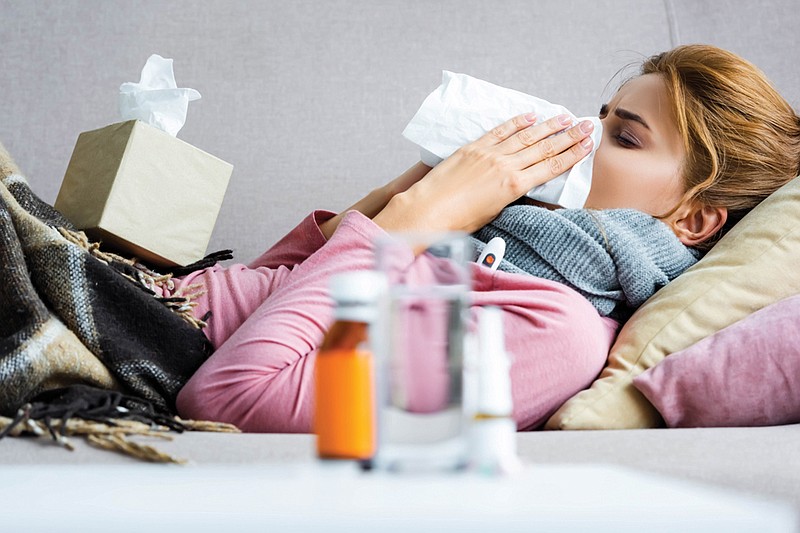The flu is still going strong in Texarkana and medical professionals are urging everyone to use caution.
"If you think you have the flu, come in and get evaluated," said Dr. Matt Young, physician and owner of Texarkana Emergency Center.
"We are seeing all ages with it and we are seeing type A and type B," Young said. "Anti-viral medications can decrease the severity of the flu and the length of it. We also want to make sure it is the flu and nothing worse like pneumonia."
Influenza, commonly called the flu, is a contagious respiratory illness that can cause a variety of symptoms including fever, cough, sore throat, stuffy nose, muscle or body aches, headaches, fatigue, and sometimes vomiting or diarrhea.
Flu cases started popping up in early November 2019 - weeks earlier than other recent flu seasons, according to the Centers for Disease Control and Prevention.
In Texarkana, cases of the flu increased after the Christmas holidays, Young said.
"It usually gets worse after everyone gets together for the holidays and school starts back," Young said.
Arkansas and Texas health departments have reported widespread flu activity for the last six weeks . For the week ending Feb.1, Arkansas reported about 2,800 positive flu tests with the state's Department of Health cautioning that reported cases reflect only a portion of the actual numbers of flu cases in the state. Texas reported 2,208 new cases.
Of Arkansas' cases, 48% were influenza A and about 52% were influenza B. In Texas, nearly 64% of new flu patients had influenza A and 36 had influenza B. No influenza-associated pediatric deaths were reported this week in either state.
Young said medical professionals recommend precautions such as strict hand washing and staying home if you have flu symptoms, especially if you have a fever.
In Texas, officials reported outbreaks last week at six nursing homes, eight schools and one immigration center. Eight of the outbreaks - six schools and two nursing homes - occurred in Health Service Region 4/5N, which includes Texarkana and Northeast Texas.
Arkansas' average flu-related school absenteeism for the week ending Feb.1 was 7.6%, which is just a slight increase from 7.4% the week before, according to the data.
Locally, for the week ending Feb.1, school-abseentism rates for Miller County were 7.93%, Little River at 6.37% and Hempstead at 5.92%. Lafayette County's abseentism was 10.94%.
To date, 36 flu-related deaths have been reported in Arkansas this flu season, one of them being a pediatric death. CDC estimates a total of 10,000 flu deaths have occurred nationwide including 68 pediatric deaths reported this season.
Since Sept.29, 2019, 16,900 positive flu tests have been reported to the ADH online database by health care providers.
Coronavirus
Young said doctors also "are concerned about" the coronavirus even though no cases have been reported in Texas or Arkansas.
However, people have been tested for the virus.
"We are being very vigilant. In our facility, we have triage questions for patients that ask if they have traveled to that province or been exposed to someone who has. It's very concerning," he said.
The Texas Department of State Health Services is urging health care professionals to ask patients with respiratory symptoms about their travel history and contact their local or regional health department if they think a patient may have novel coronavirus.
There are simple steps everyone can take to help prevent the spread of respiratory viruses like the coronavirus:
Wash your hands often with soap and water for at least 20 seconds. If soap and water are not available, use an alcohol-based hand sanitizer.
Avoid touching your eyes, nose, and mouth with unwashed hands
Avoid close contact with people who are sick.
Stay home when you are sick
Cover your cough or sneeze with a tissue, then throw the tissue in the trash-
Clean and disinfect frequently touched objects and surfaces.

